Elmore writer Mike Cobb spent some time talking with guitar legend Bill Frisell, whose new album Music IS, comes out March 16. Frisell gave us insights on his choice of guitars, and what he thinks music really is.
Elmore Magazine: You performed a country set at Jazz at Lincoln Center a few years ago. How does Americana lend itself to jazz expression?
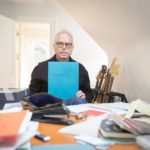 Bill Frisell: I always feel uncomfortable boxing off music into categories. All the names that we put on these things—country, jazz, folk, rock—limit what you think it can be. When you’re playing, it’s all there all at the same time, and there’s no reason why it can’t be happening simultaneously. It’s so much more complex than names. The music could be coming from all kinds of sources. Sometimes the names have a tendency to split music and in turn split off people, but for me it’s all about people being together.
Bill Frisell: I always feel uncomfortable boxing off music into categories. All the names that we put on these things—country, jazz, folk, rock—limit what you think it can be. When you’re playing, it’s all there all at the same time, and there’s no reason why it can’t be happening simultaneously. It’s so much more complex than names. The music could be coming from all kinds of sources. Sometimes the names have a tendency to split music and in turn split off people, but for me it’s all about people being together.
When you look at one type of music and check out where it comes from and start digging deeper, you realize all those things dissolve, and I love that. I love that moment where it all disappears, and it’s just music.
EM: Tell me about your recent work with Charles Lloyd and Lucinda Williams on your cover of “Masters of War.”
BF: That’s a song that I’ve been playing for a long time. I first heard Dylan do it when I was in junior high in the early ’60s. A lot of his songs never seem to lose their relevance. The song is a reminder that we have to keep thinking about this stuff. It just doesn’t go away.
I heard Lucinda do it long before I ever had a chance to play with her. Some years later we met, and I have gotten to play with her quite a bit lately.
Playing with Charles is incredible. When I was in high school, he came to Denver to play a concert. In his band were Keith Jarrett on piano, Ron McClure on bass, and Paul Motion on drums. I never imagined that 30 years later I’d be playing with them. It’s mind blowing for me. It’s like a dream.
EM: You’re very prolific. Do you have your next project in mind?
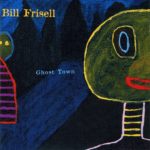 BF: The thing that’s just about to come out is a solo album called Music IS, which is just me alone, with Lee Townshend the producer and Tucker Martin the engineer. I tried this approach in ’82, and 10 years after on Ghost Town. It’s been a long process to get comfortable playing by myself.
BF: The thing that’s just about to come out is a solo album called Music IS, which is just me alone, with Lee Townshend the producer and Tucker Martin the engineer. I tried this approach in ’82, and 10 years after on Ghost Town. It’s been a long process to get comfortable playing by myself.
For me, music is really about community and having a dialog with other musicians. It’s always been about playing in a band with my friends. Even when you’re just playing with one other person, you play an idea, that person listens, they play something back, and it starts a chain reaction. It’s a conversation that goes and goes and goes. But when you’re alone, it’s up to you generate everything. Playing alone has been a challenge, but I’ve been working on it for a long time, so this is my latest attempt.
There is another aspect which is complete freedom. You can just go in any direction at any moment, which is amazing. So, it’s fear and freedom. (Laughs)
EM: You often play a Telecaster, which seems unusual for jazz. I know you play other guitars as well. What’s the relationship between instrument choice and material covered?
BF: There’s a practical aspect of the Telecaster: it’s so simple and easy to carry around. 99% of my playing involves traveling, and I don’t have a crew or roadies. It’s just me and my guitar trying to get on an airplane, so the Telecaster is perfect. It’s small enough and durable enough to stand up to the wear and tear of travel. Also, I just love that it’s so simple but at the same time so versatile. You can really make it sound like just about anything you want to. They really got it right when they came out with that guitar. There’s nothing extra on it, but it has everything you need.
I do love playing other guitars. For this new album I had the luxury of bringing other guitars to the studio, but that doesn’t happen that often. Most of the time, it’s just one guitar for the whole record. Sometimes I’m jealous of some of these guys in rock bands who have a whole a crew that wheel out a cabinet of guitars. (Laughs)
EM: The simplicity of the Tele puts it all on the player, don’t you think?
BF: Yeah, and it just gets right down to your own imagination and whatever you decide to do at the moment.
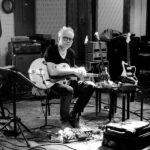 EM: Is there a dream guitar you’d love to play sometime?
EM: Is there a dream guitar you’d love to play sometime?
BF: I’ve gotten to play some incredible guitars. A few months ago I was in Rudy’s Guitar Shop in New York and got to play Tal Farlow’s guitar. It’s wild when you play someone else’s guitar, and you know their hands have been on it. It was incredible the way I could almost feel the pathways that his fingers had taken on the neck. One time I was in Rochester in Bernunzio Uptown Music, and they had one of Lonnie Johnson’s guitars, and I got to play that. In Seattle I got to play one of Jimi Hendrix’s guitars. It’s so cool to think that their hands have been on those instruments.
EM: Looking back, how do you think you’ve changed as a musician?
BF: Oh boy, that’s hard. I think it’s easier when you’re first starting out and can see your progress. With time, your progress gets smaller and harder to see. Every day I just keep plugging away and hope that something’s happening. The last album has new music, but also pieces I wrote 20-30 years ago, which was really interesting because it gave me a way to look back. Playing a song that I’d spent time with, let go, and come back to is like looking through a different lens. It gives you a marker to see what kind of progress you’ve been making.
It’s hard because you never finish and with music…nothing is “done.” Every time I make an album, I think, I’ve got this many days, I’m going to do the best I can during this amount of time, and hopefully I’ll get another chance to get it right later.
EM: And of course, live performance is a different beast.
 BF: Yeah. Sometimes I’ll play something in the studio for the first time. Then I’ll go out and play it live, and it starts taking on a whole other life, which is an amazing feeling.
BF: Yeah. Sometimes I’ll play something in the studio for the first time. Then I’ll go out and play it live, and it starts taking on a whole other life, which is an amazing feeling.
EM: Thank you for speaking with us and good luck with the new CD. I’m looking forward to hearing it!
BF: Thank you!
—Mike Cobb


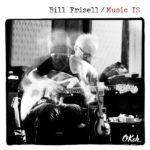
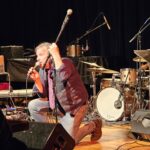




Be the first to comment!